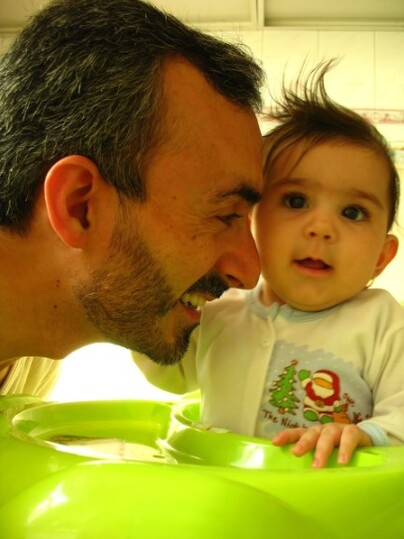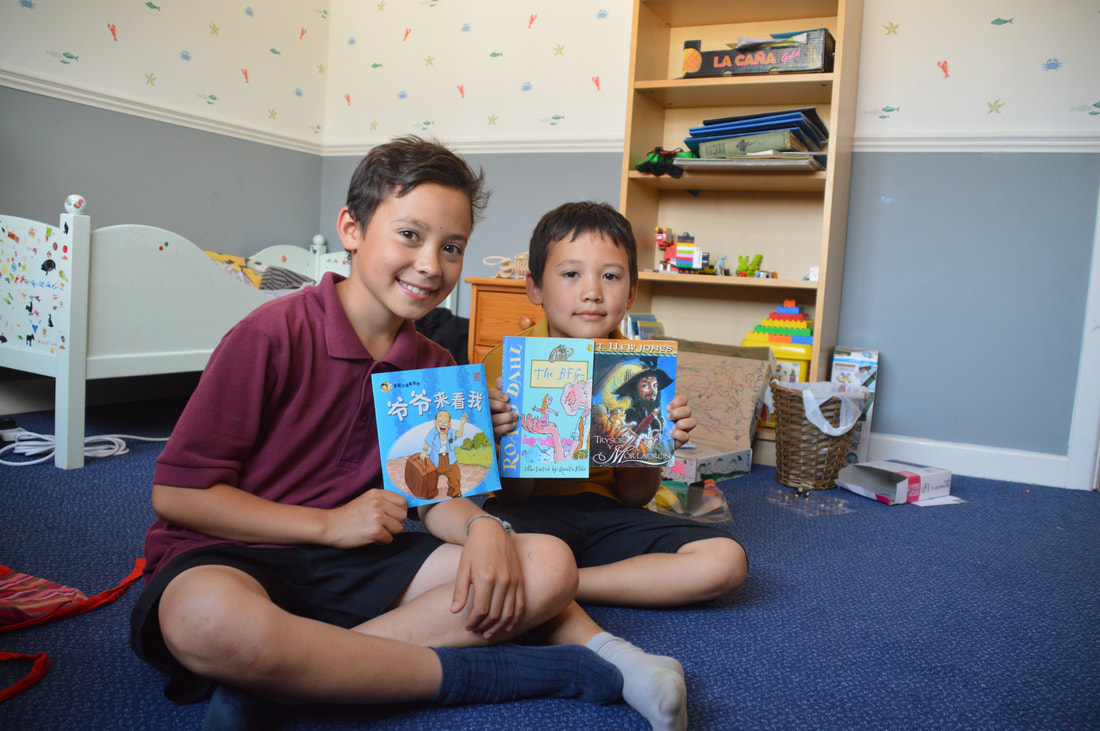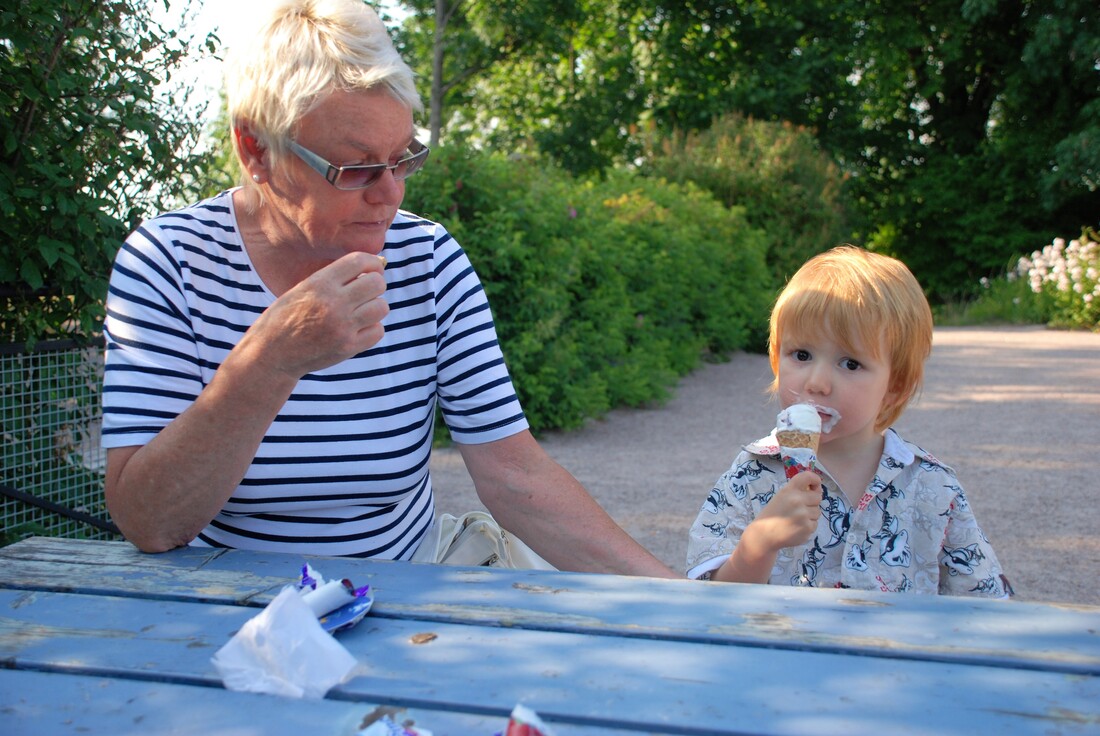|
Many parents view bilingualism as an opportunity and decide to transmit more than one language to young children. In addition to the majority language of the country, children often learn a heritage language, a minority language, a language they may have acquired due to immigration, or an additional language not spoken as a native language by either parent (non-native bilingualism). For my PhD study I investigated 14 Welsh or Finnish families who used more than two languages on a regular basis. Every single parent told me about the unexpected challenges of raising a multilingual child. Parenting can be hard—add a few extra languages with little support, and that can sometimes seem like an impossible task. The foreign-born case study parents I interviewed for my research described the extra challenge of raising children with several languages as hard work, exhausting and swimming against the tide. Despite this, they wanted the children to speak multiple languages. I asked the parents to give me reasons why they continued the quest of multilingual upbringing. Why did they want to keep on swimming against the tide? Why raise a multilingual child? The parents in my investigation considered bilingualism as a positive thing and an advantage for their children. My case study parents, and parents in previous studies have mentioned different ideological motivations for raising a polyglot. I will list four of the most common reasons below. 1. Heritage and identityParents feel that by transmitting a heritage language, they also transmit a child their heritage; or a language is a part of the child’s heritage and identity. anguage goes hand in hand with roots and culture and therefore many view it as essential if you want the child to understand the culture of their heritage. Families believe in the importance of language skills to support the children’s multilingual and multicultural identities. Parents also feel a heritage language provides a sense of belonging, self-understanding, and self-assurance, and enables children access to culture and values of the heritage. 2. Communication with extended familyMany families want their children to know a heritage language so that they can speak with relatives. For example, some grandparents may not understand the child’s first language, so knowledge of a heritage language enables the children to communicate with them. Foreign-born or minority language speaking parents value children getting to know grandparents, uncles, aunts, cousins, or friends back home through a minority language. 3. Increased cognitive abilitiesThe interpretation of scientific research on early bilingualism was mentioned as an important reason for transmitting more than one language. Some studies discuss a link between the mental exercise of using several languages and increased cognitive benefits, such as children's language skills (Engel de Abreu 2011), higher levels of cognitive empathy (Dewaele and Wei 2012) and delays regarding the onset of Alzheimer disease symptoms (Chertkow et al. 2010; Klein et al. 2016). 4. Future opportunitiesLanguage skills can be an advantage in the globalised world. Multilinguals may have widened future study or employment possibilities, and access to more opportunities thanks to knowing multiple languages. Parents often see early language acquisition as a useful investment in the children’s future. Kaisa Pankakoski Kaisa Pankakoski’s PhD research looks at language ideologies and experiences of multilingual families in Finland and Wales. More information READ MORE
0 Comments
Between 2017 and 2020, the Partner's path project focused on improving the well-being and employability of foreigners with a Finnish spouse. After the end of the project, Familia kept working on the employment theme, as it is so central to intercultural families' well-being in Finland. How do you look for a job in Finland when you know no one else except your Finnish partner? Why can't your partner support you more in your job-search? Who could guide you in writing your resume or your cover letter? Most of our activities focus on practical and peer support, but one of them aims at giving couples time and space to think about concrete and practical ways to support one another: our +Workshops. In the +Workshops, we explore different practical aspects of job-hunting, and give couples tips on how to support each other, both ways, and networking is one of the topics that we cover.
In one’s own home country, networks are built since childhood. Networks come from your family, your family’s friends, school, hobbies that you’ve had growing up, local community’s activities etc. In your home country you also have developed, on top of that social network, a professional network. Colleagues, partners, people working in your sector that you met at professional events. You have direct networks (people that you know personally) and indirect networks (friends of friends for example). In both these networks, you have developed different kinds of relationships, based on shared interests, and mutual help and support. You knew who could help you with something, and people would turn to you for other topics. When moving to Finland, most people have to start all over again. Your partner and sometimes his friends and family become your only network. This can create a lot of stress and anxiety for both the foreign and the Finnish partner. Unwanted power dynamics in the couple, isolation and loss of self-esteem may develop, and hinder both the couple’s relationship and the job hunting and integration process. Before talking more about the importance of networks in job hunting in Finland, it is important to understand the importance of networks for one’s well-being, mental and physical health. Isolation, depression and anxiety are extremely common among foreign partners. Making friends (of your own), feeling useful, heard and supported is extremely important. Peer support groups, hobbies and volunteering are three ways of making friends. Do not neglect the importance of friends and social life, as your mental health and well being are the foundation of a well-functioning job hunt. Networks, especially in Finland, are the key to find a job. 7 to 8 jobs out of 10 (in Spring 2020) are not advertised, and most people find their jobs through their networks and personal contacts. Networking requires you to put yourself in contact with strangers and might feel a bot uncomfortable and scary. You can participate to fairs, go to events from your own industry and go to actual networking events. But other ways also exist to expand your professional networks:
In the + Workshops we explore how, together with your partner, you can develop your networks and increase your well-being and employability. You can read more about the + Workshop and our other employment related activities on our website. Every year around 14% of all divorces that take place in Finland take place in intercultural families, or families where each partner was born in a different culture. Intercultural marriages tend to end in divorce slightly more often than monocultural marriages. Intercultural divorce can also be particularly rough, especially for the spouse from abroad who may not have as strong a support system and might need special support in the practicalities as well. This reality is what led Familia to work on a new course for intercultural divorce this spring.
The course includes voices from people who have experienced intercultural divorce themselves, which were collected through an anonymous survey this spring. Each theme contains resources and reflection exercise to support you through the process. You easily feel very isolated during the process but there is help and peer support available so I felt it was very important to bring up different ways to seek for help and find support to get forward The course also brings up topics of supporting children’s intercultural identity in divorce situations. For Eeva, the most challenging was narrowing down the topics to the essentials. “When I started thinking and researching and putting things on paper, it became a lot clearer what are the things that you need to think about when getting a divorce. It became easier to get past the emotions and support one’s children for example”, she shares. This spring Familia is also piloting a new, online version of our divorce support group. On the 20th and 27th of May you can join Familia’s peer volunteers to share experiences and learn from others who have experienced intercultural divorce. Discussions will have a specific theme: on 20th May the theme is coping with divorce and on the 27th of May the theme is children’s well-being in divorce. You can find more information about the upcoming group on our Duo-groups website. The Duo Divorce Online Course is now freely available to use. You can find the course on our website.
Photo: Kelly Sikkema, Unsplash How to improve and protect against a decline in relationship satisfaction So to increase relationship satisfaction in couples and to help reduce relationship break down we need to foster skills such as (3);
So how can you practically try to improve your multicultural relationship skills? Well here are a few ideas to start with; Emotional regulation skills Self-regulation is like a muscle and it needs to be exercised if you want to improve it. Meditation is a great way to do this and can increase your self-regulatory strength and has many other benefit. Below are a few links to free meditation websites with guides.
Conflict communication skills Sometimes one of the biggest problems to communication is when you have an elevated emotional response. As soon as one person in the discussion has raised their voice, it is likely that false judgements and assumptions have been made. When you next feel misunderstood in an argument, or if you are discussing a subject that you know you both argue about, try the following and hopefully it will improve your listening and empathising skills within your relationship.
This process quickly dissipates any emotional arousal and creates improved communication, greater acceptance and less defensiveness and helps empathetic understanding of each other (8). Relationship Maintenance skills Relationships can take an incredible amount of work to maintain, and that work is heavily dependant on communication. Research has identified 5 positive behaviours, that are associated with an increase in relationship satisfaction, and 6 negative behaviours that you should try to reduce, that are related to a reduction in relationship satisfaction (9) Positive Skills
Negative skills
Tips Learn each other’s languages, this can create a greater understanding, empathy and improve deeper communication between you both by discovering hidden meanings of words in the others language. This leads to a deeper understanding of your partner. As a by-product this can also help you to understand your partner’s culture and help with the integration process if you have move to your partner’s country.  Tips for native partner If your partner has moved to your native country try to remember to be understanding and supportive, as discussed above there are a lot of extra stresses that you may or may not be aware of in moving to a new country. These extra stresses added to normal life stresses can elevate the risks of mental health problems with the non-native partner. Your partner could need your support in almost all parts of their lives at the beginning due to the complications of language and culture. Even in simple areas such as buying food or arranging a dentist appointment, this can be very debilitating for your partner to have to wholly rely on you. Being open and asking questions, asking questions builds an awareness and an acceptance of the differences and similarities that that you face as a partnership and as a family. For example you will need to build a third culture together by finding out what things are important to your partner from their culture that you could both incorporate into your creation of your third culture. The value of this is to respect what is important to them and yourself to create understanding and acceptance of one another’s culture. If supporting your partner feels like it might become too much, before it does seek further support. There are peer support groups available at Familia for both native and foreign partners that provide additional support or if you prefer you can contact a therapist or couples therapist to help further. There many ways to improve relationships and you need to find one that works for you as individuals and as a family. Relationships and families can be hard work sometimes, and I think there is a need to recognise this and take a moment to think about it. Without work relationships might dwindle and fracture, but if you’re willing to create a cherished relationship they can be the most rewarding aspect of life. The loving relationship that surround you will reward you with happiness and life longevity.
(Timothy Hudd BA) The author is a BACP registered Counsellor and psychotherapist in the UK, living and practicing in Helsinki, and married to a Finn himself. References
 Having a baby for many couples brings about joyous nourishment for all involved and is said to be more work and more rewarding than you can ever imagine. This new change can also create a significant decrease in satisfaction within the relationship. This article series is based on the relationship changes during this life transition, the effects on the communication within the relationship and the possible ways to improve these skills for the betterment of the relationship and the baby’s psychological and emotional development. During this transition from partnership to parenthood, the focus of the relationship is switched from the self and partner to the new born baby. Half of all new parents report a decrease in their relationship satisfaction. This disconnect has been historically explained through the ‘rose tinted’ view of child bearing perpetuated by society and the actual reality of work load associated with parenthood. This transition creates a dramatic reorganisation of the relationship dynamics and the needs within them (1). After the child is born the new parents patterns of intimacy and communication change, sexual satisfaction tends to decline, and new parents report an increase in conflict and disagreement. This might lead to a reliable decrease in relationship satisfaction and seems consistent across western cultures and is therefore likely to affect intercultural couples in Finland. The importance and impact of this decrease in relationship satisfaction upon the baby’s development can be seen in the link to depression, attentional and emotional related problems, withdrawal, poor social competence, low self-esteem and conduct related disorders later in life. The environment that is provided by the parents is shaping the way in which the baby’s brain is developing and can inhibit the emotional and intellectual development of the baby. If the parents are experiencing a reduction in their relationship satisfaction then they are likely unable to provide a healthy emotional environment for the baby’s development (1,2). Furthermore, women in the partnership tend to experience a larger change in their relationship satisfaction than men. This can be partially explained by the stereotypes of labour distribution for gender roles within the home, as the mothers are more likely to have disproportional demands on their time over the fathers (1). This major life change of parenthood, forces the re-examination of the prior arrangements within the relationship and changes the perceptions of imbalances and injustices. The problems that existed in the relationship before parenthood become exacerbated with the additional dynamic of a baby. This new dynamic creates issues common to both mono and intercultural couples alike for example;
Intercultural couples additionally suffer from stresses related to their change of circumstances, for example;
These additional stresses, and many more within intercultural relationships are clearly reflected within the per year divorce rates in Finland, being three times higher for intercultural couples than mono-cultural couples (6). Keys to success As we now know this worrying statistic, it is important to keep in mind what factors create success in relationships. The key differences that predict a stable or an improvement in relationship satisfaction are for example (Romano, 2008);
During the transition to parenthood any relational problems that are present in the relationship or individual psychologies before the birth of the child can grow to become more of a problem. This can be explained by the couple’s self-regulatory strength depletion. Self-regulatory strength can be understood as the ability for a person to repress, change or regulate their own behaviour. Self-regulatory strength can be temporally weakened by recent exertion and stresses common to new parents such as time pressure, noise, fatigue etc. This can lead to the decline in the relationship satisfaction as the depletion can affect the parents emotional regulation, choice-making, physical persistence, impulse inhibition, and high-level cognitive performance (7). The couple’s individual psychologies interact with the transitional issues, who we are, the circumstances we encounter, and create the way that we respond. This will define whether there will be a decline in the relationship satisfaction or not (1). The negative transitional issues that are associated with a decline in relationship satisfaction are;
In part 2 we will read more about how to improve and protect against a decline in relationship satisfaction. (Timothy Hudd BA) The author is a BACP registered Counsellor and psychotherapist in the UK, living and practicing in Helsinki, and married to a Finn himself. References
|
kirjastoKirjasto-sivuilta löydät artikkeleita, juttuja, vinkkejä ja oppaita sekä tutkimustietoa kahden kulttuurin perheitä lähellä olevista aiheista
kategoriat
All
|
|
|
© Familia 2024






 RSS Feed
RSS Feed

